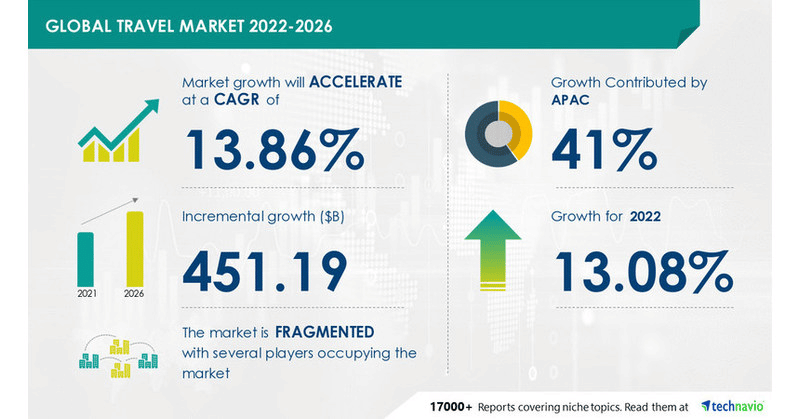
Updated: February 14, 2024
BusinessGuru.co is reader-supported. When you buy through links on my site, we may earn an affiliate commission. Learn more
The U.S. travel and tourism industry saw a big loss at the height of COVID-19. According to Statistica, the travel agency market saw a whopping loss of $16 billion in 2020. With domestic flights in full swing and international borders opening again, the industry is rebounding.
Globally, the travel market is expected to grow with a CAGR of 13.86% from 2022 to 2026. This offers hope to newcomers looking to get a foot in the door. If you’re wondering how to start a travel agency, now might be the time to make your move.

Throughout this guide, we’ll discuss the basics of how to start a travel agency. From market research and competitive analysis to sourcing equipment and designing business cards. Here’s what you need to know to get started with your own travel agency.
Market research is an essential part of any business plan. There are two main forms of market research to concern yourself with. These are primary and secondary research.
Primary research is all completed by you. This is first-person knowledge gained by tasks such as:
Anything you do to find information not already available to you is considered primary research.
Secondary research is gathering data found by others. For example, using information from a government report, statistics website, or travel publication. This research is less time-consuming, as most of the work is done for you.
Secondary research tends to be less thorough or specific than primary research.
Some of the things you might look into during market research include:
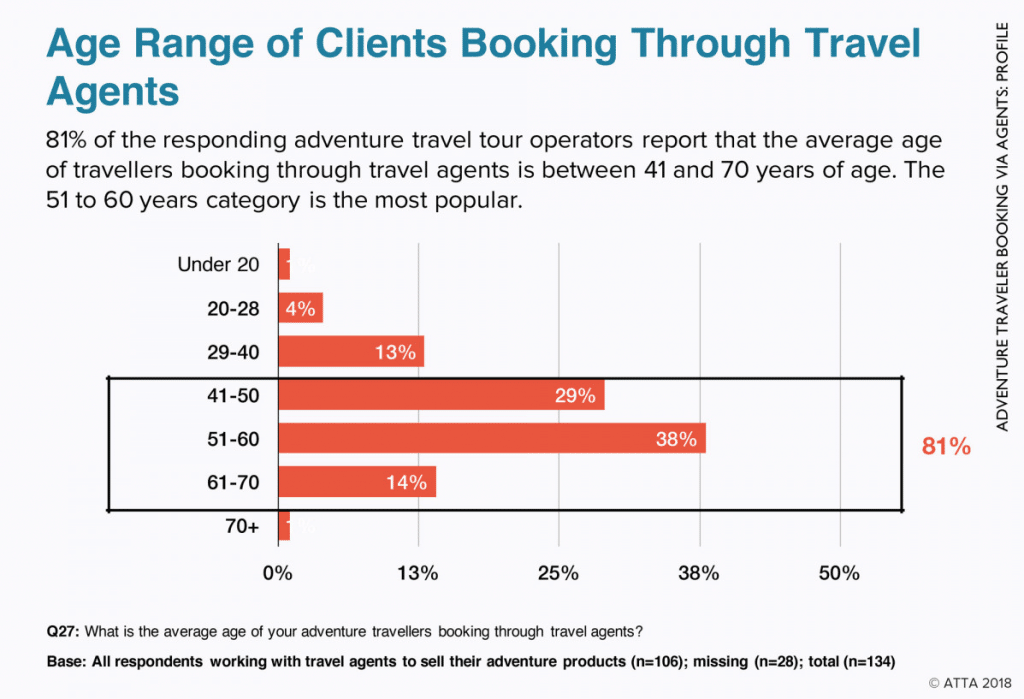
Using market research you’ll find the right price points and service types to suit your target demographic. For entrepreneurs starting a travel agency, this information is invaluable to the success of your brand.
Services are one of the first things potential customers look at when considering a new travel agency. Market research and competitor analysis offer insight into popular travel agency services in your area.
Common services for a travel agency include:
Your service offerings could put your travel agency on the map, especially if you offer above and beyond local competitors. A good way to find the right services is to start a social media poll. Ask potential customers what services they prefer in a travel agency. This creates a jumping-off point to build your travel agency business plan.
Offering unique tours can also be highly beneficial. For instance, you could take the tourists to visit the local perfumery, traditional blacksmiths, glass blowers, olive oil factories, and other interesting locations or trades.
Knowing your competitors is almost as important as your initial travel agency business plan. Competitors tell you a lot about the market you’re coming into. They’re already established in your field and have a range of services, prices, and customers.
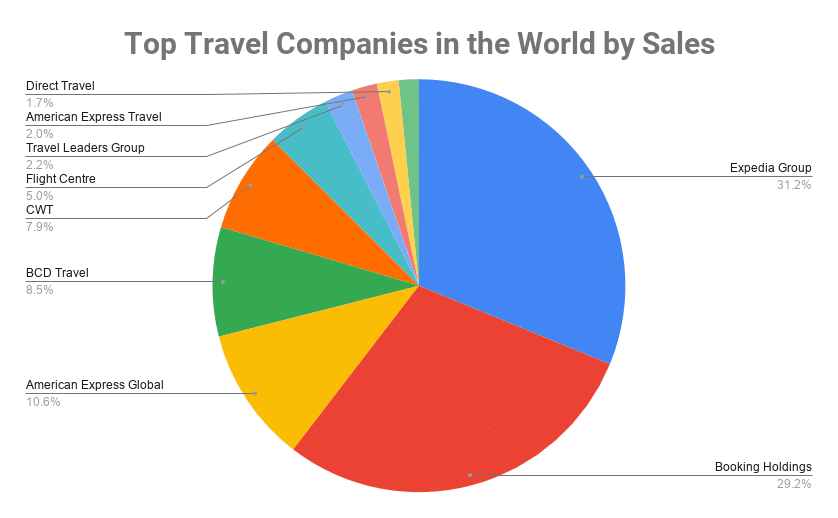
It helps to know how saturated the travel industry is. If there are a lot of other travel agents in your area, focusing on your brand will become crucial to your success. Building a brand that stands apart from the competition ensures business despite high market saturation.
Some ways to analyze the local travel agency competition is:
By reviewing competition in the area you can better structure your brand, marketing, and customer outreach. Look at things like services, prices, special offers, and customer outreach efforts.
Travel agents deal with competition on a local and national level. Your agency on the East Coast might sell the same cruise passes as an agency on the West Coast or vice versa. There are also local customers looking for flights and accommodations in and out of your city.
Some of the major competitors in the U.S. travel agency market to investigate are:
G Adventures is a tour and travel agency offering bucket list vacations in places like Japan, Sri Lanka, and South Africa. The company operates with a small group tour structure. G Adventures has been in business since 1990.
Butterfield and Robinson is a luxury travel agency. They specialize in bespoke travel, self-guided trips, and scheduled group trips. The brand has been in business for more than five decades, opening its doors in 1966.
Expedia is a driving force in the online travel industry. Expedia Cruises is a subset of the Expedia group. They offer franchising opportunities to newcomers, with more than 285 locations already active. The company began in 1987.
To start your own franchise you’re required to pay a franchise fee of $39,000 with an overall investment of $165,250 to $291,245.
Starting a new business is costly. A travel agency, while requiring somewhat less equipment than other business models, is no different. There are initial startup costs, and ongoing fees to consider as you get the ball rolling.
Here, we’ll cover some of the fees you’ll encounter as your travel agency gets off the ground.
The costs to run a travel agency depend on your base of operations, additional office or retail space, commercial vehicle needs, and more. To open your own brand expect to $6,000 to $10,000 plus ongoing costs.
Franchising a travel agency like Expedia can cost up to $291,245 as an overall investment. The high cost of a franchise comes from a longstanding brand name, an existing global client base, and built-in legal and insurance coverage.
You can also gain these advantages through a host agency. Host agencies act as a parent company to smaller travel agencies. Your host agency provides support and larger commissions by taking some of your profit.
Some of the costs you’ll encounter while opening your own travel agency include:
These costs fluctuate based on location, number of clients, type of equipment (new or used), and other variables. If you choose to drive a commercial vehicle, you’ll pay more for the vehicle and or branding..
As a travel agency, you’ll need far less equipment than businesses with retail inventory or tools. Aside from marketing materials like flyers, brochures, and catalogs, you’ll need to buy the following to start your business.
These materials come from all different suppliers. For computers, look at Apple or Best Buy. Fax machines can also be purchased at Best Buy. Visit Uline to get an idea of prices for different office furniture products based on your tastes.
Plenty of travel agency businesses can be processed online. There’s something to be said for brick-and-mortar agencies as well.
Commercial properties are leased by the square foot. Most contracts require a minimum of one year. So, if you see one advertised for $20 per square foot and it’s a 1,000-square-foot space, you know it’s $20,000 per year.
Before you start selling cruises and flights, your agency needs to be registered with the Small Business Administration. Registering a name and obtaining the proper permits to operate in your state will cost somewhere between $300 to $800.
All small businesses require business insurance. A travel agent usually requires general liability, professional liability, and professional property insurance. You may also want to invest in loss of income insurance in the event of another situation where travel restrictions impede sales.
Utilities are essential for running a travel agency. You’ll need all the basics like heat, electricity, and water, as well as a business phone line and internet. Utility costs vary by location and use. Most businesses factor about 4% of their budgets for utility expenditures.
With your equipment and registration costs, you’ll also encounter ongoing costs as a travel agent. These include things such as:
If your agency has any retail or promotional inventory, including luggage tags and branded flash drives, you’ll need to restock regularly.
As you cross the t’s and dot the i’s of your small businesses, you’ll need to register your company as a legal business entity. There are four main entities to choose from, including Limited Liability Corporations, Partnerships, Sole Proprietorships, and Corporations.
Unless you’re part of a bigger company within a franchise or host agency, an LLC is usually best.
The most common choice for a small business formation is an LLC. This is because it gives you all decision-making power as a business owner while separating professional and personal assets. If something happens to your company and you go bankrupt, lenders can’t touch your personal wealth.
Sole proprietors are single business owners or married couples who own a business together. All the power of ownership and decision-making rests on the proprietor. The downside to this entity is that, unlike an LLC, all personal assets are tied up in the business.
If a customer misses a flight and loses money because your agency printed the wrong ticket, a lawsuit could leave your personal savings at risk.
A partnership is similar to a sole proprietorship. Instead of a single owner, there are multiple. This is often thought of as a good solution for a family-owned business. Again, like a sole proprietorship, your personal assets aren’t protected by your business formation.
Corporation entities are strong in the legal department. All your personal and professional assets are kept separate. This is a good option for large businesses or chains.
Corporations, while secure, aren’t a great option for a small business owner. They’re notoriously complex to register, and expensive to maintain. Overall, an LLC is an optimal choice for a local travel agency.
Creating a fully legal business in the U.S. has multiple steps. One is obtaining an EIN, or employee identification number. This is often referred to as a federal tax ID because your business requires this number to file taxes.
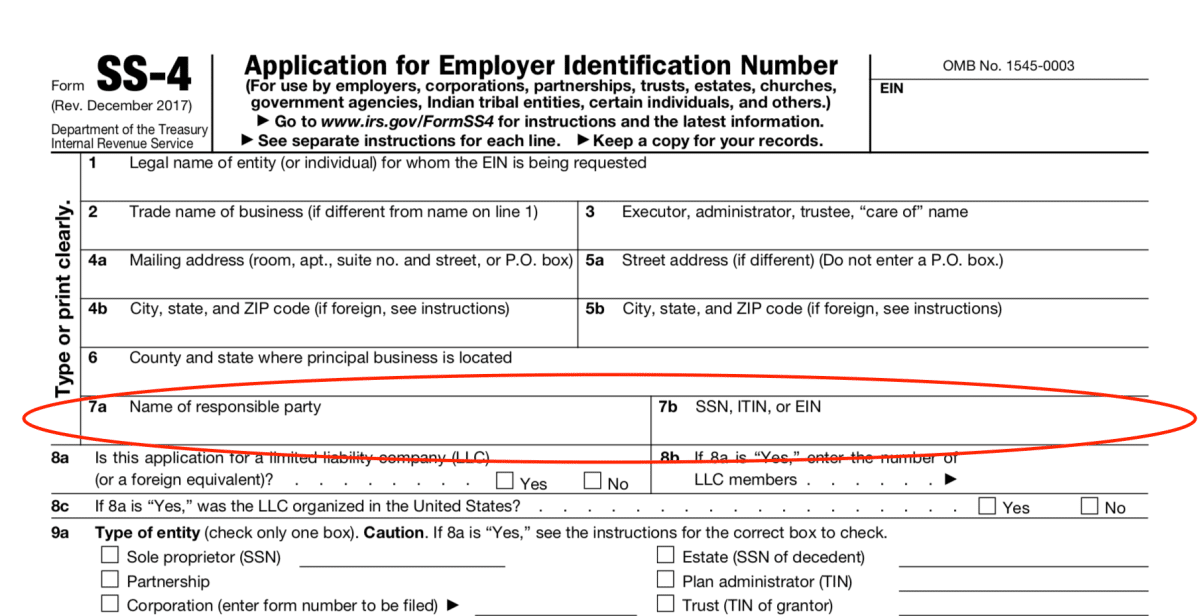
Apply for an EIN through the U.S. Small Business Administration. Once you receive your number you can pay employees, file annual tax reports, open a company bank account, and more.
You may also want to take this opportunity to visit the U.S. government website and check on local sales tax in your state.
Travel agents make a lot of sales. Sometimes those sales are even processed in other countries’ currencies. Tracking all incoming and outgoing funds gets complex. This is where accounting becomes an integral part of your travel agency.
There are many avenues for solid accounting, including:
Your own travel business software may have some type of accounting tools included. Even so, investing in software designed specifically for accounting is beneficial. Accounting software is designed to tackle daily bookkeeping, record keeping, invoicing, and more.
We recommend QuickBooks for accounting packages based on your budget, business style, and needs. QuickBooks offers payroll, cashflow management, job costing, bill management, and a variety of other handy features.
QuickBooks and other software help with a lot of the day-to-day accounting processes. At the end of the year, it’s worth having a professional on hand.
Certified accountants work with businesses across the U.S. to ensure taxes are filed properly. When business taxes get muddled, legal issues arise. This is one area of accounting, you don’t want to see any mistakes.
Accurate tax filing impacts how much you owe or get back from the IRS. It also minimizes the risk of a future audit.
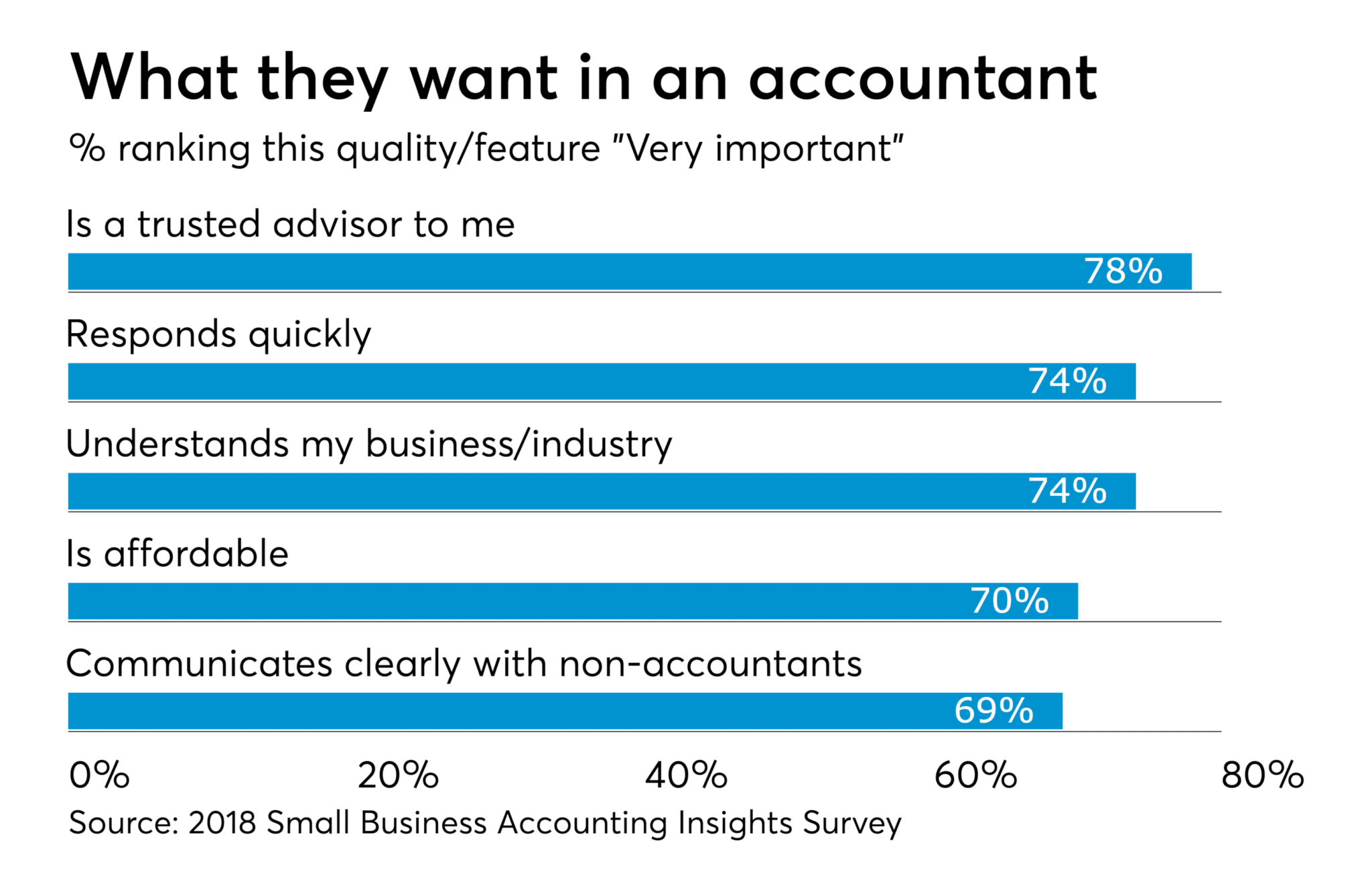
Accountant fees vary from firm to firm. You could pay anywhere up to $400 an hour for a good quality professional accountant. In the end, this is well worth the investment.
The IRS recommends opening a business bank account to separate personal and professional finances. While some small businesses don’t think it worthwhile to open a second account, it could help you avoid future fraud implications.
As mentioned above in the section on business formation. There are certain entities where your personal assets are at risk if a business has financial issues. Maintaining one bank account for all incoming and outgoing funds puts your personal assets at risk simply by combining them with business assets.
Some other reasons to open a business bank account are:
A business bank account makes your travel agency seem more professional.
A business credit card holds much the same value as a business bank account. For cash-back rewards, low APR, and other business-related perks, a business credit card is ideal.
Be careful spending and paying back a business loan of this kind. The card might be registered to your business, but it can still impact your personal credit score.
There are no federal license or permit requirements for a travel agent in the U.S. unless you are supplying air travel or water travel personally. If you simply direct customers to third-party travel methods, you shouldn’t need additional licensure through the U.S. Small Business Administration.
Any business in the U.S. that offers air travel needs to register through the Federal Aviation Administration. Similarly, any U.S. business offering water travel should check requirements with the Federal Maritime Commission.
The SBA’s website lets you search for local and state permits by city and zip code.
Business insurance keeps you and your company safe. There are many ways to protect yourself, depending on the insurance products you choose.
Travel agents usually invest in general liability insurance. This covers you against financial repercussions caused by damage to people or property by your business or services.
Commercial property insurance is also an asset. If a customer slips and falls while walking into your agency, commercial property insurance pays for medical or legal expenses as a result of that fall.
General liability insurance costs $300 up to $1,500 a month for $1 million in protection. Commercial real estate protection costs $1,000 to $3,000 for $1 million in coverage.
As a travel agent, your retail space might double as an office. Some business owners prefer a separate space to make calls, file paperwork, go over employee information, and other administrative duties.
There are several ways to create an office space. Here are a few options.
Home offices come with many incentives, including:
The IRS allows home office users to deduct up to $1,500 a year based on a model of $5 per square foot, or individual deductions for things like:
There are regulations to follow to receive tax deductions. Check the IRS website to ensure you qualify.
Coworking office spaces are a modern revelation. They combine all the best parts of commercial office space with the benefits of public workspaces. Coworking offices, like home offices, let you skip lengthy contracts and high rent fees. Instead, you share the space when other coworking office users aren’t there.
One platform for coworking is WeWork. They offer several packages and office types to suit your budget and workspace needs. Whether you want a private office, a semi-private office, or a shared space with others, WeWork has a selection to choose from in cities across the country.
Commercial offices are pricey and particular in contract type and length. Some commercial locations are designated for particular office types.
For a small business, a home or coworking space is best if you don’t have a private office in the agency’s retail location.
Giving your customers the best prices on flights, accommodations and tours mean having the best equipment and software. Sourcing equipment is an important part of setting up your travel agency.
There are two ways to obtain the furnishings and equipment you need to start.
New furniture looks good, smells good, and often comes with benefits like protective treatments and warranties. Similarly, new printers, fax machines, and computers ensure your electronics live long and dutiful lives in your travel agency.
Apart from the sources mentioned above, you can check Amazon, National Office Furniture, and even Ikea for furniture.
Buying used furniture and electronics can be risky but cheap. Look at sites like Facebook Marketplace and Craigslist for local listings. Before you buy anything used, check to make sure everything works. For furniture, inspect it to ensure it comes from a pet, smoke, and pest-free property.
The best place to get used equipment for a travel agency is from another business. Businesses tend to use their furniture and electronics less harshly than a local family of five might. You can expect better quality items.
Your brand is your travel agency’s reputation and name all rolled into one. It evolves through several identifying factors, including images in your logo, engagement with your customers, and even the marketing materials you use.
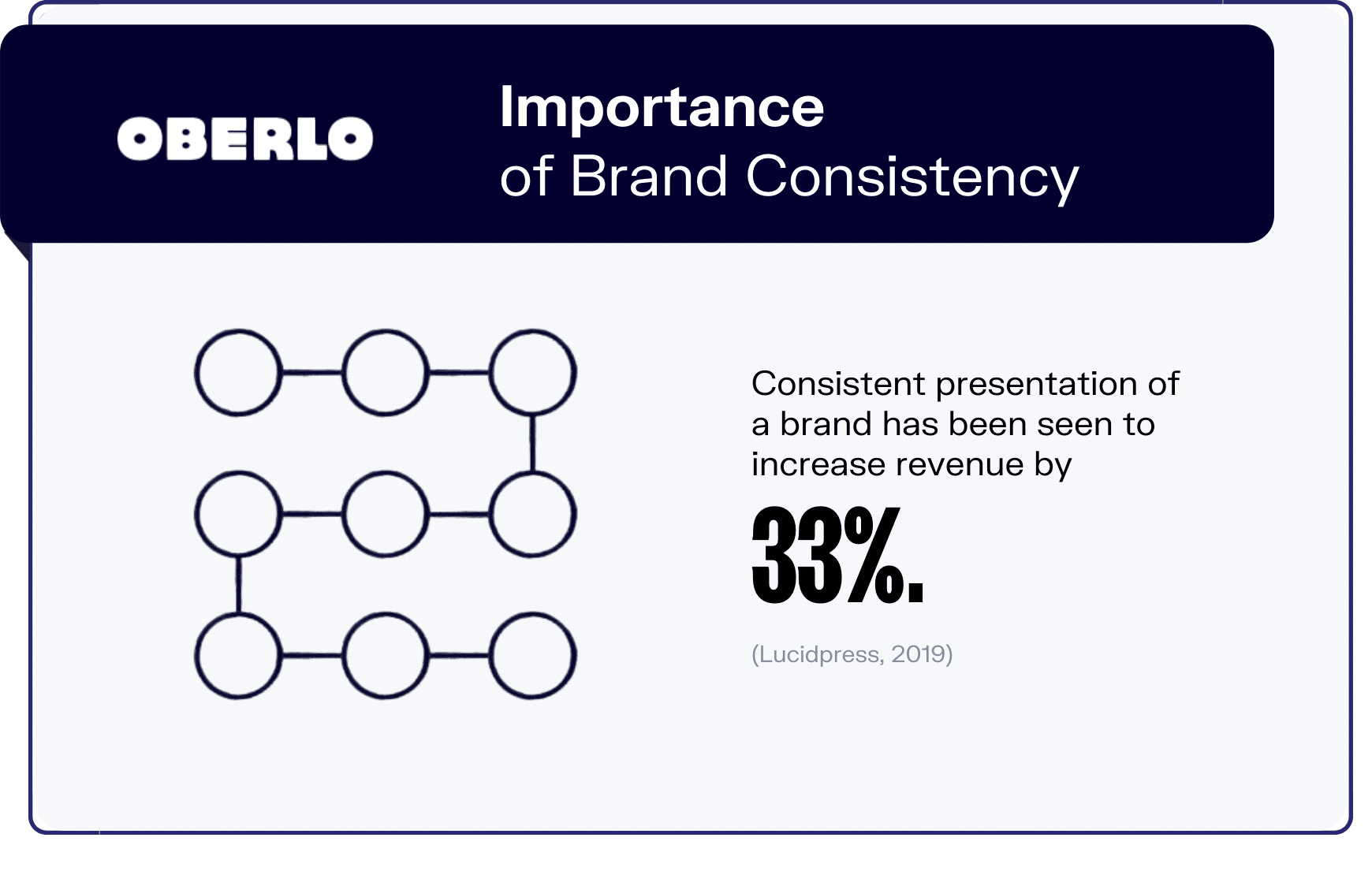
As a small fish in a big sea, you need your brand to stand out and put you on the map for locals looking to travel. Here are some of the ways to begin growing your brand.
Giving customers a branded method of contact, like a business number and business email, makes you look more professional. It also keeps your personal calls from getting mixed in with professional calls, which can be confusing.
There are plenty of big-box business plan options with companies like T-Mobile and AT&T. We recommend Google Voice for an outside-the-box business phone number option.
Google Voice can be used from any device you can connect to your Google account, including a tablet or computer. Prices for a business line start at $10 per month.
A picture is worth a thousand words. For a business, a logo is worth more than words. It helps boost income by encouraging brand recognition among consumers. One of the top places to begin your logo design journey is Looka.
Looka uses state-of-the-art AI technology to design logos based on your tastes. You sort through images, colors, font types, and other identifying logo features until Looka builds an algorithm to create a logo just for you. Use your logo on signage, merchandise, and business cards to help locals identify your travel agency.
Vistaprint is the first place we recommend shopping for business cards. Like Looka, Vistaprint tailors card designs to your preferences after having you sift through font and color options. Choose from gloss or matte cards, and upload your brand’s logo for further personalization.
Vistaprint offers different packages and prices depending on how many cards your agency needs. They also print signs, stickers, labels, stationary, and merchandise like bags and clothing.
In a digital world, a domain name says a lot. It tells your customers where to find you online. It also tells them how professional you are about your digital profile. Choose a domain name that reflects your business name and the travel industry to make it easy to consumers to find you.
There are plenty of places to shop for domain names. Namecheap.com is a good place to start if you want to keep costs low. For a .com address, prices start as low as $6 a year.
Your domain name is ready, but what will customers see when they click your link? Web design is an integral part of your online brand. Everything from loading time and site navigation to aesthetics and widgets adds to the customer experience.
If you’re not up to building your own website try freelancer sites like Fiverr. At Fiverr, you can post jobs and have seasoned freelancers bid on the task.
Wix is another website design option if you want to take a shot at it yourself. It offers premium templates and simple-to-follow design guides for newbies.
Branching out and connecting with others in your industry is a good way to get your brand noticed. Networking lets you gain invaluable knowledge from travel experts with years of experience. One way to do this is by joining groups and industry associations.
Some memberships and associations to discover include the American Society of Travel Advisors and the National Tour Association.
Local associations give greater insight into the travel industry’s comings and goings in your state and city. Join a local group of travel agents or industry partners to learn tips about serving consumers in your community.
Partnering with indirect competitors, like airports, hotels, and even restaurants grows your brand and your local network. Search for local groups through other travel agencies, community centers, or online.
Local events, conventions, and trade shows help you further connect with peers. Use Meetup to find a local group or great your own. Search through local listings by zip code, state, and meetup type.
Social media is an undervalued business tool. It’s free and provides phenomenal outreach when used correctly. Facebook groups let you connect to other travel agents without paying membership fees. Some Facebook groups to check out include:
If you don’t connect with travel agencies on any existing Facebook groups, try making your own.
Marketing is essential for any successful travel agency. With so many simple travel apps and comparison sites promising the cheapest vacations, you need to show consumers you exist. Marketing tools let you connect with your local customers and tell them how you can make their travel plans better.
There are many ways to start marketing a new travel agency. Here are a few of the most basic ways to get started.
It sounds simple, but it works. Word-of-mouth marketing is still a huge benefit in the travel industry. It makes a difference when friends and family members tell colleagues and neighbors how great your agency is.
There are plenty of ways your loved ones can spread the word about your brand, including:
Get everyone you know to share your business with at least two people. You never know, maybe those two people will share with others.
Digital marketing is increasingly important to modern marketing. It helps create brand awareness and drive traffic to increase your conversion rate. As you determine how to start a travel agency be sure to invest in marketing early.
A conversion rate is the number of customers who use your service divided by the number of website visitors. If 100 consumers visit your travel agency website and 25 of them book trips, your conversion rate would be 25%.
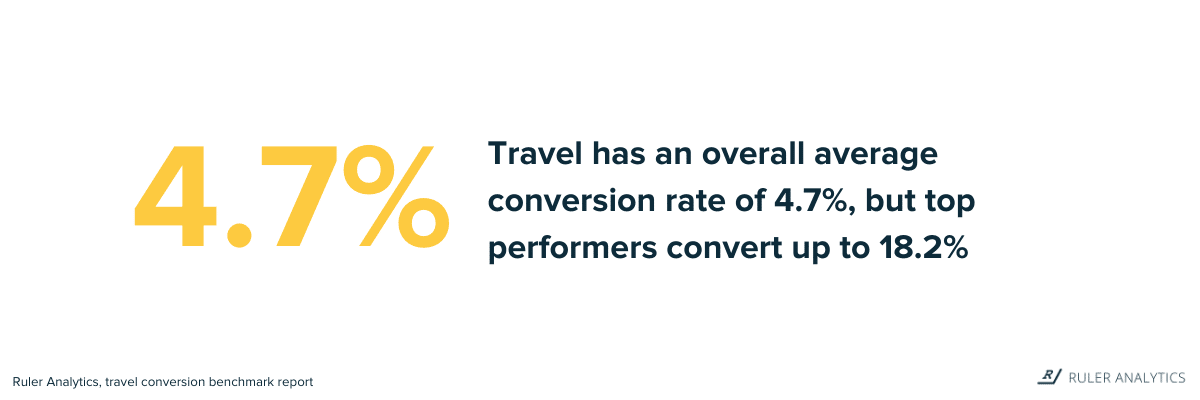
Increase your digital presence by:
Don’t forget to engage with the content you see consumers posting online as well. Commenting, sharing, and liking consumer content makes your brand appear more of a human than a commercial entity.
Marketing with traditional mediums like billboards, newsprint, and direct mail is considered traditional marketing. Compared to some of our latest approaches to advertising, it may appear outdated, but it works.
Traditional marketing methods are useful because they provide a lasting impression. It’s harder to ignore a travel brochure in your mail box than an email in your junk mail filter.
Your customers are the reason you do what you do. Focusing on consumers helps you get a leg up over the competition. Modern consumers like working with companies they can trust. Showing your clients that your travel agency has their best interests at heart makes your brand stand out.
Show your customers you care by implementing:
Work with your customers to create custom travel experiences they’ll never forget by going that extra mile.
We hope this guide has helped you figure out how to start a travel agency. Wherever your entrepreneurial dreams take you, happy travels and a safe return!